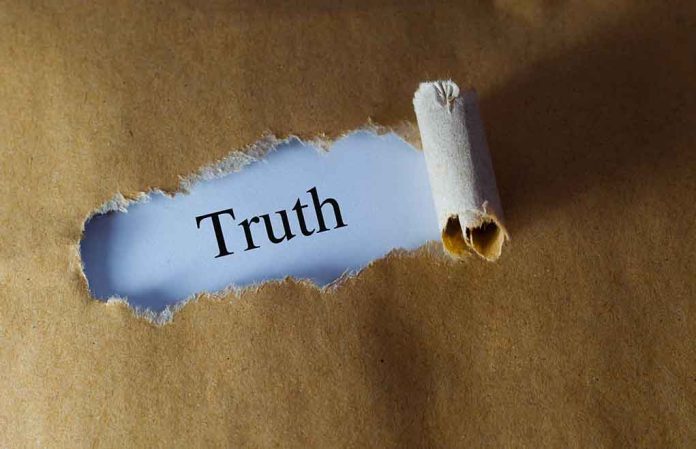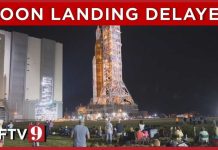
Ben Stiller vehemently denies receiving USAID funding for his humanitarian work in Ukraine, calling out Russian media for spreading lies.
Key Takeaways
- Ben Stiller strongly refutes claims of receiving USAID funding for his Ukraine trip, calling them Russian “lies”
- A viral video falsely alleged USAID paid millions to celebrities, including Stiller, for Ukraine visits
- Stiller clarifies his trip was entirely self-funded and part of his role as UNHCR goodwill ambassador
- The misinformation spread rapidly, shared by prominent figures like Elon Musk and Donald Trump Jr.
- The incident highlights the ongoing challenges of combating misinformation in the context of the Ukraine conflict
Stiller Refutes USAID Funding Claims
Actor Ben Stiller has found himself at the center of a misinformation storm, vehemently denying claims that he received funding from the United States Agency for International Development (USAID) for his humanitarian work in Ukraine. The controversy erupted when a viral video, later attributed to unreliable Russian media sources, falsely alleged that USAID had provided millions of dollars to celebrities, including Stiller, for their visits to the war-torn country.
“There was no funding from USAID and certainly no payment of any kind,” Stiller stated emphatically, addressing the baseless accusations.
The actor, known for his comedic roles, took a serious tone in debunking the claims, emphasizing that his trip to Ukraine in June 2022 was entirely self-funded. Stiller’s visit was part of his role as a goodwill ambassador for the United Nations High Commissioner for Refugees (UNHCR) on World Refugee Day, aimed at raising awareness about the plight of Ukrainian refugees.
Misinformation Spreads Rapidly
Despite Stiller’s clear denial, the false narrative gained significant traction online. A video spreading these unfounded claims was shared by an account called “Patriot Lady” and subsequently reposted by high-profile figures, including tech mogul Elon Musk and Donald Trump Jr., further amplifying its reach. The video falsely claimed that USAID had allocated $4 million to Stiller, $20 million to Angelina Jolie, and $5 million to Sean Penn for their humanitarian efforts in Ukraine.
“These are lies coming from Russian media,” Stiller stated firmly, addressing the origins of the misinformation.
A community note on the platform X (formerly Twitter) identified the original source of the false claims as a Russian site deemed unreliable. However, despite this clarification, the video received nearly a million views, underscoring the rapid spread of misinformation in today’s digital landscape.
As I predicted, Elon has let loose a thousand bogus stories about USAID. He is the king of misinformation. https://t.co/jgs4TjLyA2
— Richard Bradley (@RPBradley1) February 5, 2025
USAID Under Scrutiny
The controversy has placed USAID under increased scrutiny. Elon Musk, who shared the misleading video, criticized the agency on his social media platform X, going so far as to call it a “criminal enterprise.” This accusation led to a temporary shutdown of USAID for budget auditing, sparking a heated debate about the agency’s operations and the broader implications of social media-driven narratives on government institutions.
“Sir, really nice to meet you. Thanks for taking the time. You’re my hero,” Stiller said to President Zelensky during his 2022 visit, highlighting the genuine nature of his humanitarian efforts.
Democrats have criticized Musk’s actions as illegal and unconstitutional, arguing that his sharing of misinformation has undermined government departments. The incident highlights the complex interplay between social media, celebrity activism, and international aid efforts against the backdrop of ongoing geopolitical tensions.
Unverified claims spread like wildfire when they match what we want to believe. No proof, just outrage. Even after denial, the damage is done. Misinformation is faster and cheaper than truth. We’ve all seen it. How about next time, let’s pause and check the facts before we share. https://t.co/Tvcrq6ejM8
— Michael O'Herlihy (@michaelo) February 6, 2025
Ongoing Impact of Misinformation
Despite clarifications from Stiller and fact-checks debunking the claims, neither Musk nor Trump Jr. has removed the video from their platforms. This reluctance to retract false information underscores the persistent challenge of combating misinformation in the digital age. The spread of these unfounded claims continues to impact public perception and potentially influences attitudes towards humanitarian aid and celebrity activism.
“Totally false. Untrue,” Stiller reiterated in response to former Trump lawyer Sydney Powell, who also shared the video.
As the conflict between Russia and Ukraine enters its third year, incidents like this serve as a stark reminder of the ongoing information warfare that accompanies physical conflicts. The ease with which misinformation can spread, even when quickly debunked, poses significant challenges for humanitarian efforts and international diplomacy in an increasingly interconnected world.
Sources:
- Ben Stiller denies receiving USAID money for humanitarian trip to Ukraine: ‘These are lies from Russian media’
- Ben Stiller denies USAID funded Ukraine trip: ‘These are lies coming from Russian media’ | The Independent
- Ben Stiller Debunks Elon Musk-Amplified Tweet Claiming Actor Took USAID Money For Ukraine Trip














